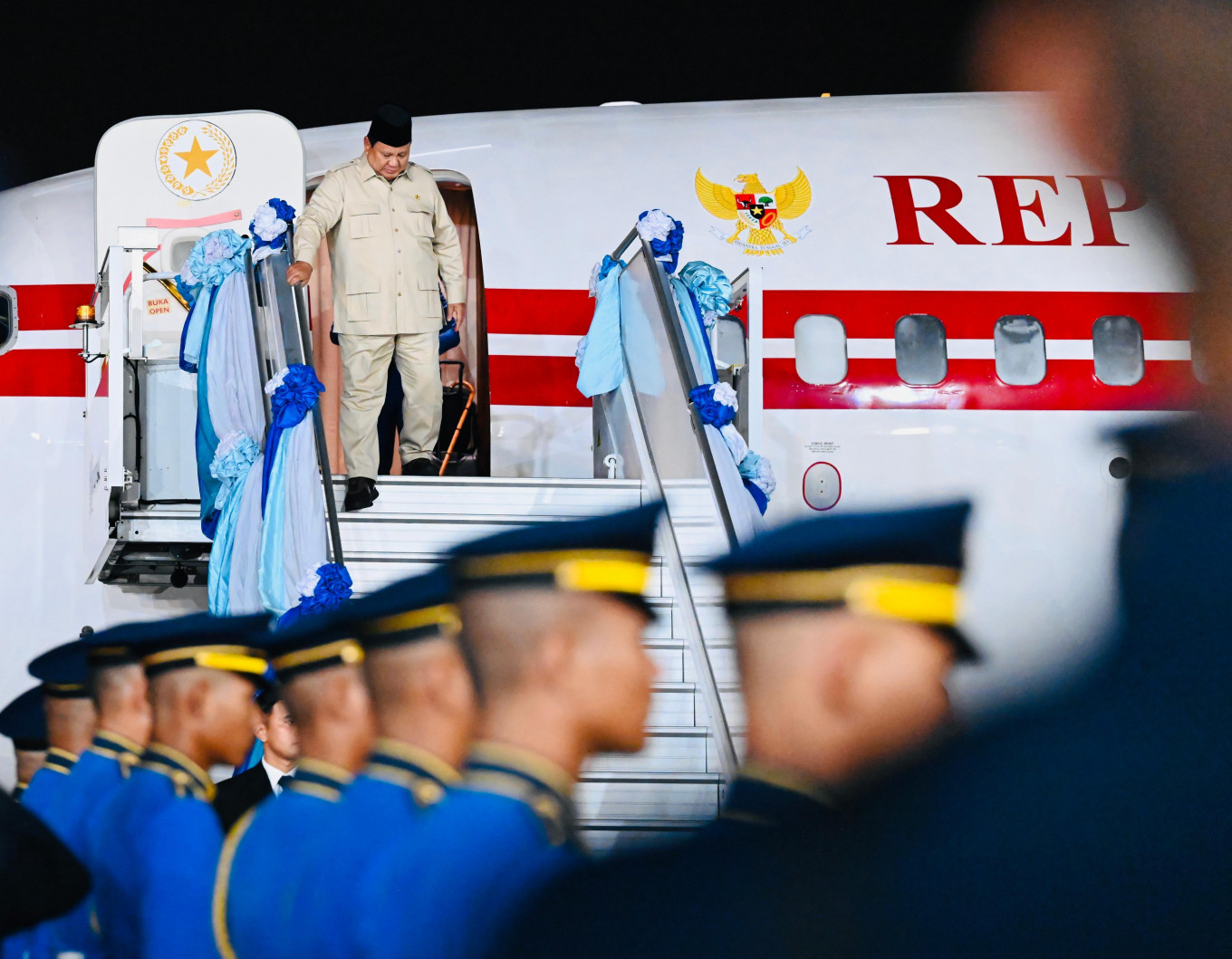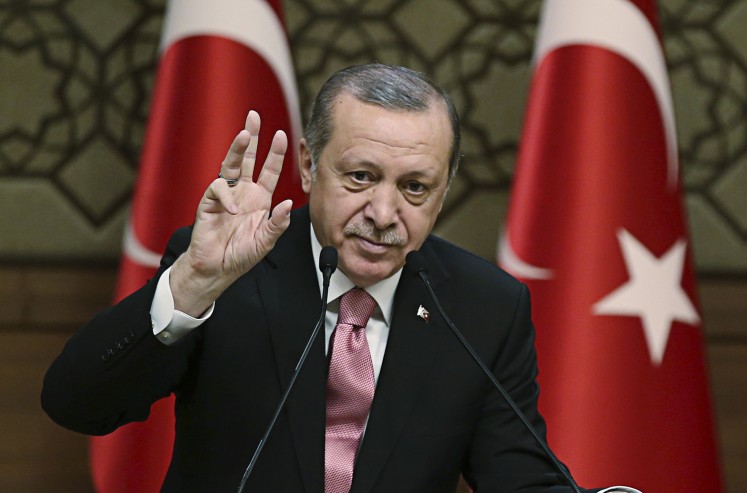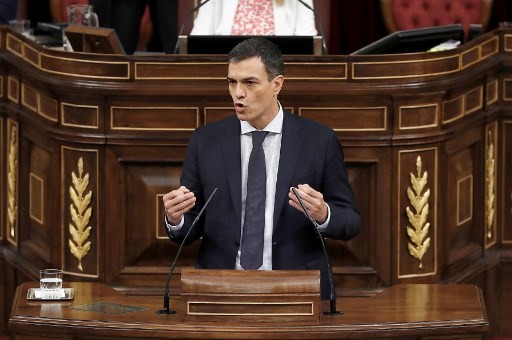Popular Reads
Top Results
Can't find what you're looking for?
View all search resultsPopular Reads
Top Results
Can't find what you're looking for?
View all search resultsPrabowo’s Southeast Asian trips sideline ASEAN: Analysts
Change text size
Gift Premium Articles
to Anyone
P
resident Prabowo Subianto’s recent visits to Southeast Asian neighbors have yet to dispel concerns over his lack of engagement with ASEAN as an institution, analysts say, warning that Indonesia risks drifting from its historic leadership role in the region in favor of bilateral diplomacy.
With just one week remaining before the 46th ASEAN Summit in Malaysia, Jakarta’s institutional priorities remain unclear, they added, noting that the Foreign Ministry has been conspicuously absent from the negotiation process for key issues, such as the Myanmar conflict and the Code of Conduct (CoC) in the South China Sea.
Prabowo, widely considered a “foreign policy president”, has recently stepped up his diplomatic outreach to fellow ASEAN member states, with his most recent trip being a three-day visit to Bangkok, where Indonesia and Thailand elevated their relationship to a strategic comprehensive partnership.
His Southeast Asian tour began in early January with a personal visit to Kuala Lumpur, the first of three trips to Malaysia, followed by visits later that same month and again in early April. During these meetings, Prabowo highlighted his personal rapport with Malaysian Prime Minister Anwar Ibrahim and, according to official statements, discussed a range of bilateral and multilateral issues.
Earlier this month, Prabowo also made a one-day visit to Brunei, where he received the country’s highest honor.
Read also: Prabowo in Bangkok to bolster ties ahead of ASEAN summit
However, these trips have unfolded against a backdrop of growing concern among foreign policy experts that Prabowo has shown limited interest in reinforcing ASEAN as a central regional institution. Critics warn that this approach risks sidelining Indonesia’s key historical role in informally captaining the 10-nation grouping.
Many have pointed out that before visiting any ASEAN neighbors, Prabowo prioritized official trips to seven other countries, including Peru, Brazil, the United Arab Emirates and Egypt, and rarely mentioned ASEAN during his presidential campaign last year.
Although his recent outreach to ASEAN members suggests increased regional engagement, analysts remain skeptical. They argue that the President’s focus appears to be on strengthening bilateral relationships with neighboring countries rather than bolstering ASEAN’s institutional coherence or regional agenda.
“I see Prabowo’s visits to these neighboring countries as being motivated by his personal relationship with these leaders. His acknowledgement of ASEAN during these visits tend to be purely rhetorical, and he is more interested in advancing his national agenda,” Ahmad Rizky M. Umar, an international relations expert from Aberystwyth University, told The Jakarta Post on Tuesday.
“His visits to Malaysia, for example, can be attributed to his personal relations with Anwar Ibrahim. He did not involve the ASEAN institution during these engagements,” he continued.
Close visits, distant vision
Previously, analysts have highlighted Prabowo’s foreign policy approach as personalistic in manner, preferring to engage with countries whose leaders he is comfortable with, oftentimes at the cost of a coherent, strategic approach.
His choice in touring the Middle East in mid-April after Washington’s tariff announcement, for example, raised the eyebrows of foreign policy analysts, who opined that it would have been more logical to strengthen Jakarta’s economic ties with its regional neighbors than Middle Eastern countries for a better mitigation plan.
This personalistic approach to foreign policy has also been paired with an apparent lack of interest in engaging with multilateral institutions. In the political manifesto of his Gerindra Party, Prabowo blatantly expressed his lack of confidence in ASEAN.
“The regionalism paradigm that has birthed ASEAN has become an artefact of diplomatic history,” the manifesto said, “Indonesian foreign policy [...] cannot continuously rely on the ‘solidarity’ of ASEAN, which has been proven nil when it collides with each member’s national interests”.
Read also: Are we abandoning ASEAN?
Against this backdrop, Prabowo’s pro-ASEAN statements during his Southeast Asia engagements cannot be seen as anything more than “lip service”, said Centre for Strategic and International Studies (CSIS) international relations department head Lina Alexandra, who also dubbed Prabowo’s choice of countries to visit so far as “random”.
“I’m still in the dark as to what Indonesia’s current stance is when it comes to key regional issues, or what it will prioritize next week during the ASEAN Summit,” Lina said.
“There has been no special attention given to the Myanmar crisis, for example, or negotiations for the CoC. There are no promising signs of Indonesia taking on its natural leadership role, which the region desperately needs, even during discussions on the ASEAN Community Vision 2045 which will outline the region’s long-term outlook,” she continued.
Indonesia’s continued absence from key regional negotiations, many of which have traditionally fallen within its strategic interests, raises concerns not only about Jakarta’s diminishing influence, but also about ASEAN’s broader capacity to function without a clear leader, Umar warned.
“On the South China Sea, for example, Prabowo has chosen to acknowledge China’s illegal claim instead of taking on its traditional role as an ASEAN negotiator. Sure, Jakarta is not a claimant over the sea, but it will still be negatively impacted if the CoC negotiations fail,” he said.
Lina from the CSIS further warned that ASEAN without leadership will not go anywhere.
“I don’t see any other country but Indonesia which can take on this role. Unfortunately, I have not seen any promising reports on this taking place”.










